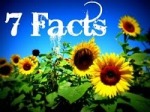 Title: Mockingjay
Title: Mockingjay
Author: Suzanne Collins
Pub. Date: August 2010
Publisher: Scholastic, Inc.
Genre: Science Fiction
Age Range: Young Adult
Synopsis/Teaser: Katniss Everdeen has survived two rounds of the Capitol of Panem’s deadly Hunger Games, and is now safely in District Thirteen, the mysterious heart of the rebellion against the Capitol. Her family and a few of her friends who survived the bombing of her home district, Twelve, are safe as well. But Katniss’s fellow Hunger Games tribute and half-real, half-pretend lover Peeta is in the Capitol’s hands. Katniss must learn to swallow the horrors of her past and her emotional ties in order to lead the rebels to victory and act as their Mockingjay.
Review: I’m probably one of the last fans of The Hunger Games trilogy to read Mockingjay. I put it off until now for two reasons: 1) I’m too cheap to buy the hardcover, and it didn’t show up in my local library until now, and 2) I was rather afraid of the ending. Given the series’ history of being “realistic” in the killing off of characters, I was nervous who we were going to lose in the end. It was worse than I imagined. We lost our Katniss from the very first chapter– figuratively, anyway.
The fearless, spunky, acerbic, and honest narrator I’d grown to love over the course of the series was missing from the first line of Mockingjay, to be replaced with an uncertain, confused, suspicious, and rather nasty girl that I didn’t quite recognize. If Suzanne Collins meant that Peeta being in the hands of the Capitol and District Twelve really destroyed her protagonist, she did it effectively– sacrificing, however, readers’ adoration for Katniss herself.
I found the doom and gloom of this book to be utterly too much. It was depressing, frankly. I won’t go in to detail– this is a spoiler-free zone!– but I’ll assure you that anyone with deep attachments to all the good guys will be positively devastated. I was. I really think Collins could have done better to lighten up a bit. But, when you get to the core of the matter, the truth is that this is a hard, jarring, dystopia novel, not some beach read.
One very intriguing aspect of this novel was the “Bread and Circuses” concept. Panem et Circenses is the Latin term referring to the system of providing commodities and entertainment to a ruler, city, or other prominent entity in order to keep the peace. Finally, the connection between Ancient Rome and Panem comes to light! Panem is Latin for “bread,” something your resident classics geek is ashamed that she didn’t notice earlier. Quite a few of the names of Hunger Games characters are Latin– Cinna, Octavia, Castor and Pollux– so it makes sense the Panem is a rather Rome-like society. I suppose the Hunger Games are akin the gladiator fighting, and the Districts of Panem provide the Capitol with all that it needs.
Mockingjay is a gripping, fast-paced whirlwind of a novel. Its high level of death and destruction isn’t for the faint of heart, but it is a worthy ending to the Hunger Games trilogy.
Recommended for: Fans of futuristic dystopias who can stand the murder and mayhem. It’s pretty essential to read the rest of the trilogy before delving into Mockingjay.
Overall Rating: 3 out of 5 possible stars.














I agree completely with your reaction. I found myself nodding along to every point you made. Also, I’m so glad you posted about the connection to Panem et Circenses, because I (also a classics lover) totally missed that as well, and it gives the entire trilogy an entirely new aspect.
I had always thought that the name Panem came from Greek pan (everything), meaning that Panem was ubiquitous at that time because there was nothing else. Perhaps Suzanne Collins meant for it to have a double meaning.